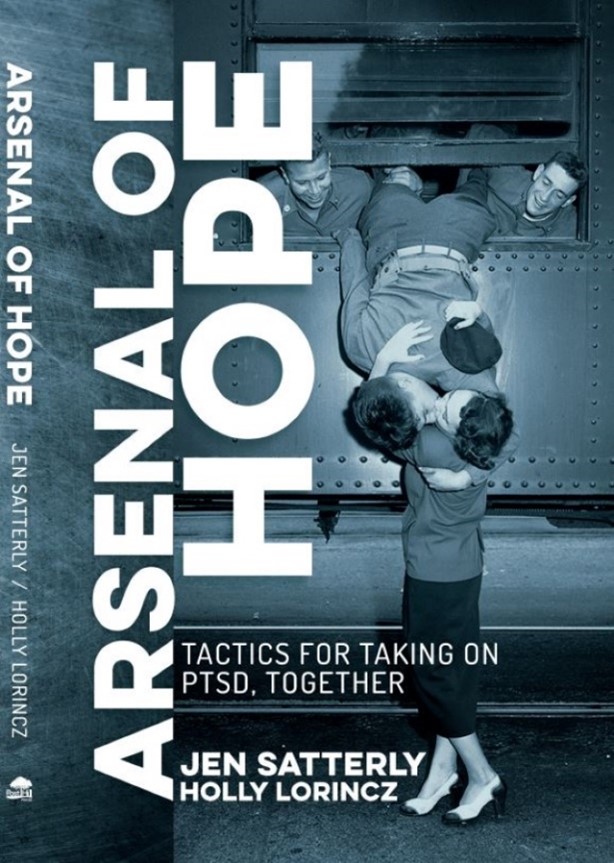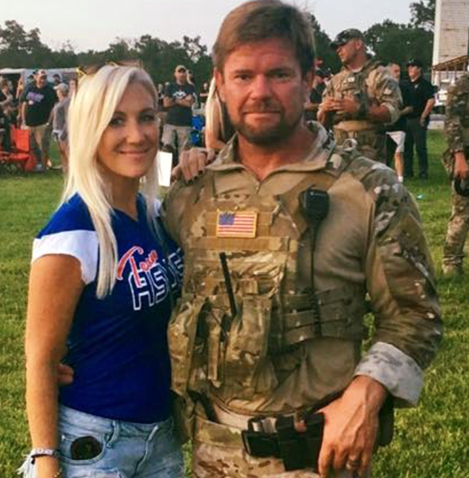As we continue to amplify awareness of post-traumatic stress disorder (PTSD), this month’s reading recommendation is dedicated to the military spouses and families who experience secondary traumatic stress, (emotional stress that results from indirect exposure to PTSD and traumatic events). “Arsenal of Hope: Tactics for Taking on PTSD, Together,” co-authored by Jen Satterly and Holly Lorincz serves as a guide to empowering families to work together to heal their individual and collective traumas. In this book, Jen shares countless hours of research and real-life examples from her own personal experiences with PTSD to help Veterans, first responders, civilians, and their families work together to overcome trauma.
Jen Satterly is a compassionate advocate for Veterans and their families. As CEO and co-founder of the All Secure Foundation, she works alongside her husband, Command Sgt. Maj. Tom Satterly, U.S. Army (Retired) who served for 25 years, 20 of those in 1st Special Forces Operational Detachment-Delta (Delta Force). Jen served as director of film and photography embedding with Special Operations units during realistic training missions for three years before founding All Secure to help warriors and their families heal from war trauma on the homefront. This month, Meagan McGowan, our digital exhibitions manager, had the opportunity to connect with Jen about her experiences writing “Arsenal of Hope” following the release of Tom’s book, “All Secure,” published in 2019.

MM: What sparked you to write “Arsenal of Hope” and how did you know that “now” was the time to work on this project; was there a specific catalyst?
JS: Tom and I spend countless hours on the phone, working in person, and conducting PTSD Resiliency Training at Special Operations units around the country. My own experiences and the conversations I’ve had with warriors and warrior spouses over the years led me to sit down with my incredible co-author, Holly Lorincz, to write “Arsenal of Hope.” I heard many of the same questions that I was asking when I met Tom eight years ago. I heard the frustration, the fear, the confusion and the shame from thousands — I knew that I had to share what I learned in our own recovery. With 22 service members and an unknown number of secondary PTS suicides each day, I could not wait any longer to get answers out there. I had to let people know there is hope in healing, and there is a pathway forward.
MM: What do you want readers to take away from Arsenal of Hope?
JS: If there is one thing I want readers to take away from this book, it’s that trauma is trauma no matter how you experience it. And no amount of willpower will make it go away. You have to face trauma to fix it, and when you put in the work, you can get to the other side of it and live a happy life — one that you so very much deserve. Asking for help is not only admirable, but a sign of strength, not weakness. This book is not just for spouses, but for warriors and really anyone who has suffered a trauma who wants to better understand it and learn how to heal from it.
MM: Why is it important to talk about PTSD within our communities?
JS: Post-traumatic stress disorder is not a “disorder” to us or our organization. In fact, many nonprofits and organizations are moving to the term PTSI (post-traumatic stress injury) because injuries can be healed, and you can recover from them. You can’t heal from something you are not facing; you can’t change behaviors that aren’t working for you or your family until you take steps to patiently and diligently heal and recover. Time does not make it “go away,” in fact, it can get worse with time. It is critical to get started today. The longer someone waits to get help, the longer that person will suffer. There is hope and there is healing, and that is why it is important for us to talk about Post-Traumatic Stress.
MM: What is one of the most important steps for a service member to seek or receive help?
JS: The first healing modality is different for every person; however an honest personal assessment should be the first step. Write out a list: How am I feeling and how is it different than I felt before? Am I depressed, drinking too much, angry for small things, sleep deprived, anxious, lost your love for things you used to enjoy doing? Take an honest look at that list and get to work.
The first healing modality for one might be to seek help for substance abuse issues, while another service member might not touch alcohol and needs help with anger issues at home and first seeks martial counseling. The most important thing is self-assessment and creating awareness around behaviors that are destructive or unproductive and having the patience to work through it. It might take you three tries to find the right therapist, but don’t give up. Keep going.
MM: What advice would you give to family members of Veterans who live with post-traumatic stress, and what has helped you on your journey?
JS: First, know that the behavior at home is not your fault. Often loved ones develop caretaker fatigue or secondary PTS and so it’s critical that you are taking care of yourself and getting the help and support you need as well. Our nonprofit treats service members and their families as equals — both serve this country, just in different ways; both need and are deserving of help in healing from war trauma.
Secondly, you can lower a ladder down that deep hole your loved one has dug for themselves, but you cannot make them climb out of it. You can offer love, help and support, but no one has the power to save anyone else, despite your efforts. Each person is responsible for their own healing and happiness. Though no one can truly save anyone else, you can show them the way, and you can be the lighthouse in those dark times.
MM: How do you raise awareness for post-traumatic stress?
JS: Tom and I travel the country to Special Operations units to train service members about the biology of PTS — that it is an injury you can heal from with time and patience, and that asking for help makes you a stronger warfighter, not a weaker one. We often put it this way: Would you rather go into battle with someone who is behaving rationally, thinking clearly, sober and mentally fit? Or, would you rather go into battle with someone who has not addressed their trauma and is coping with pills and booze, not thinking clearly and possibly is acting out with reckless behavior? Everyone picks the first service member. Additionally, we offer coaching, counseling, warrior couples retreat workshops, seminars, and we are currently raising funds to build a small facility outside of Ft. Bragg to serve Special Operations warriors and their families with counseling and workshop retreats.
MM: Can you share with us some final thoughts and encouragement for anyone in need of help due to post-traumatic stress?
JS: No one out there is truly alone, even when you feel isolated from the world. There are millions who feel the same way, who are suffering unnecessarily, who don’t know what’s wrong with them or why they can’t control certain behaviors. Once you understand PTS, you will understand that it’s not your fault, and there is a way to change behavior that works for you or your family. There are protocols for when you break your leg and how to heal from it. Same here; there are ways to heal from PTS, and there is a great life on the other side of it. Never ever give up, never surrender, you are worthy of healing. When you get to the other side of trauma, take others with you and pass it forward. PTS is a massive issue in this country, and we must face it to heal from it. Never give up hope!

“Arsenal of Hope: Tactics for Taking on PTSD, Together,” coauthored by Holly Lorincz and Jen Satterly, published by Post Hill Press, 2021 is available in stores and online.
For more information about Jen and Tom Satterly and how you can connect with All Secure Foundation, please visit: www.allsecurefoundation.org
Image Captions: Navy Seal Realistic Military Training Exercise, 2016; Arsenal of Hope, 2021; Jen and Tom Satterly, 2017



